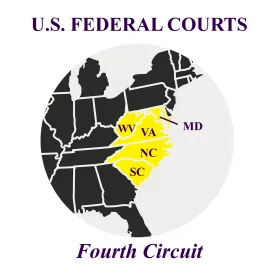|
The Fourth Circuit in Cook v. United States1 held that federal tax penalty assessments and the payments the debtor made were not voidable fraudulent transfers that generally allow debtors to recover certain pre-bankruptcy payments. The bankruptcy trustee in Cook sought to nullify trust fund recovery penalty assessments the IRS made against the debtor and attempted to recover any penalty payments to the IRS. The trustee sought to void the tax penalties under the Bankruptcy Code’s (the Code) fraudulent transfer provisions under 11 USC §§ 548(a)(1)(B) and 544(b)(1) and local fraudulent transfer law. The trustee asserted that the debtor received nothing of reasonably equivalent value in return for the tax penalties the IRS assessed. In rejecting the trustee’s claims, the court held that IRS penalties do not fall within the fraudulent transfer provisions of the Code or local law.
Governing Law
The Code grants a trustee authority to void certain transfers of interest by a debtor and to recapture any transfers back into the bankruptcy estate. Code Section 544 generally grants a trustee the power to void any transfer of an interest of the debtor in property or any obligation incurred by the debtor if it is voidable by an unsecured creditor under applicable law. In Cook, the court looked to the North Carolina Uniform Voidable Transactions Act (the Act) as the applicable law to determine if the trustee could exercise his power to void the obligations and transfers under Code Section 544. The Act generally provides that obligations or transfers are voidable if: (1) the debtor made the transfers or incurred the obligations without receiving a reasonably equivalent value in exchange for the transfer or obligation, and (2) the debtor was insolvent at that time or became insolvent as a result of the transfer or obligation.2 Thus, for the trustee to be able to void the tax penalties, he was required to show that when the debtor incurred the obligation or transferred payments for the tax penalties, the debtor did not receive reasonably equivalent value, which generally means that the debtor received nothing in return or at least nothing close to the value of the obligation or transferred payments.
Cook Holding
The Fourth Circuit in Cook followed the decision in a similar case by the Sixth Circuit, In re Southeast Waffles LLC,3 in rejecting the trustee’s assertions. In Southeast Waffles, the Sixth Circuit held that tax penalty obligations were not voidable under the Code or the Tennessee law, which had provisions similar to the Act and the Code. The court in Cook, like the Sixth Circuit, looked at the language of the applicable state law and the Code and determined that the statutes presume a voluntary exchange needs to take place between the debtor and the creditor. The court in Cook also determined that the language of the Act suggests that for an obligation to be incurred, an oral or written agreement must take place. In reviewing the IRS tax penalty obligations at issue, the Cook court determined there were no exchanges or any written or oral agreements between the debtor and the IRS. In its opinion, the court stated that “the tax code required the IRS to impose taxes, tax penalties and interest against [the debtor]. The IRS had no choice.” Since the court held that tax penalties were not obligations incurred as contemplated by the Act, the trustee was unable to rely on any local law to grant him the authority under Code Section 544 to void the tax penalty obligations of the debtor.
1 No. 20-1685 (4th Cir. 2022).
2 N.C.Gen.Stat. §39-23.5(a). The Code provides similar voidable provisions as the Act. 11 USC § 548(a)(1)(B) permits voiding debt obligations that received less than a reasonably equivalent value in exchange for the transfer or obligation. The main difference between the Code and the Act is that the statute of limitations for transfers under the Code is limited to two years.
3 702 F.3d 850 (6th Cir. 2012).





 />i
/>i

